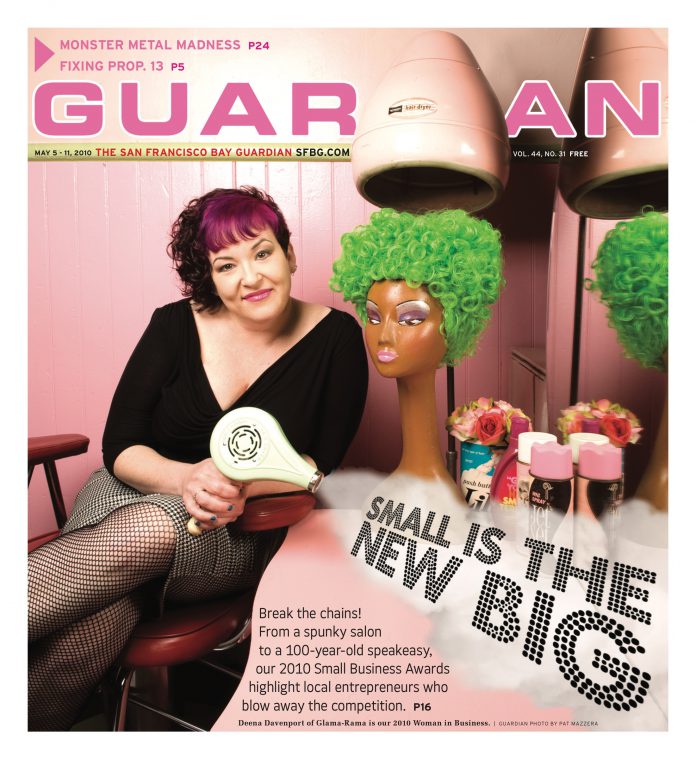arts@sfbg.com
LIT/NCIBA One gets the sense that Novella Carpenter can do anything. A girl from rural Idaho, she knows how to hack it in "scruffy, loud, and unkempt" Oakland, the murder capital of the United States, amid the drug deals, gun fights, and open prostitution on the urban fringe. She also maintains a healthy, active relationship with her auto mechanic boyfriend (described as "a love sponge"), her many friends, and her local community.
On top of these already impressive competencies, she probably knows as much as Laura Ingalls Wilder about farming: she can grow more types of vegetables than most of us have eaten or even heard of; harvest rainwater; keep bee colonies; make honey; and raise and slaughter chickens, geese, ducks, turkeys, rabbits, goats, and — Jesus Christ! — pigs. You learn all this and more in Carpenter’s urban farming memoir, Farm City: The Education of an Urban Farmer (Penguin, 288 pages, $16), winner in the Food Writing category of this year’s Northern California Independent Bookseller Awards. Unlike many others who’ve published books on their stellar accomplishments, Carpenter is bitingly funny, an immensely gifted storyteller, and likeable throughout.
Carpenter always knew that farming made her happy. But recalling the solitude she felt as a child growing up on a farm in Idaho, "a place of isolation, full of beauty — maybe — but mostly loneliness," she "chose to live in the city." At first she couldn’t decide which city she wanted to live in, despite the dearth of progressive cities to choose from. Portland was out of the question for being "too perfect." Austin was "too in the middle of Texas," and in Brooklyn there was "too little recycling." San Francisco was "filled with successful, polished people." So she chose to move to Oakland, which was "just right." In Farm City, Carpenter points to Oakland’s "down-and-out qualities" — the music scene, the scruffy citizenry "who drove cars as old and beat-up as ours" — that made it feel most like home.
Moving to Oakland was the first leg of Carpenter’s journey. The next was to turn her small part of the city into a "modified, farm animal-populated version." Indeed, it is Carpenter’s relationship with her fellow animals that provides the biggest, most startling revelations in Farm City. If you’re an animal lover at heart, as Carpenter is, it seems nothing short of barbaric to raise your own animals, grow to love them, and then stoically kill them one day. But Carpenter thinks the matter through in philosopher’s terms, describing animal husbandry as "a dialogue with life." Raising her animals to be eaten is not a matter Carpenter takes lightly — she recalls the many hours spent Dumpster diving for enough food to feed her ravenous pigs — and, part and parcel, she assumes their slaughter as her responsibility. To render the experience is one of her duties as a writer.
But turning her Oakland habitat into a farm was not an easy process. Farm City, which begins with a cheeky nod to Isak Dinesen’s Out of Africa ("I have a farm on a dead-end street in the ghetto"), chronicles the obstacles, frustrations, fumbles, and profound satisfactions of achieving a major accomplishment through innumerable and successive trials and errors. Carpenter may have a clucking henhouse today, but at one point she had to use Q-Tips and, when they failed, her own fingers to remove backed-up fecal matter from the "blocked buttholes" of her baby chicks (when you have them shipped, they tend to develop digestion problems). In her learning process, Carpenter leaves no stone unturned and no detail — not even baby chicken butts — unexamined.

